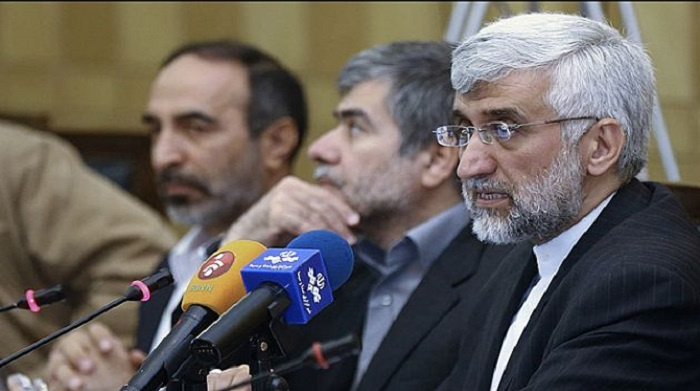Claims of Nuclear Deal’s Critics: A Mirage

The Iranian Parliament’s frequent invitations of the former and present members of the nuclear negotiation teams raise some questions about the main purpose behind these political gestures. Are there any factional, political or electoral goals lurking beneath these invitations? Are the JCPOA’s critics following goals other than scrutinizing the deal for its likely defects? The answer to these questions is clear. One goal is to get ready for the next parliamentary elections and of course to cover up past mistakes.
These individuals [Saeed Jalili and other JCPOA critics] were policy makers during the ninth and tenth administrations. Their actions and statements resulted in United Nations Security Council resolutions against Iran, an eternal discredit for the ninth and tenth administrations. Careless towards the country’s fate, they welcomed sanction resolutions and did not take the resolutions seriously. The result of such behavior was the decline of the country’s economic and industrial growth rate to -0.6 percent, while the country’s economy was ripe for quick growth. Now, they just want to cover up the mess they had made through parliament meetings.
This is their last opportunity. In the meantime, the Supreme Leader of Iran, Ayatollah Khamenei, has pointed out the significance of the parliament’s role in the decision-making process regarding the JCPOA. This statement has provided the critics with an opportunity to gain what they had lost earlier.
The former negotiating team claims that they were successfully able to gain Iran’s enrichment right in the Almaty-2 meeting in April 2013; a claim that is not true at all. According to existing documents, the US President wrote a letter to the Supreme Leader of Iran for the first time, stating that if Iran accepted to negotiate, then the US would accept Iran’s peaceful enrichment. This letter is the only document regarding Iran’s right to enrichment.
There are some reasons to reject the claims of the nuclear deal’s critics on gaining this right in Almaty-2:
Had the past negotiating team obtained the enrichment right, the deal should have been signed. This shows that nothing had been achieved to be signed. Furthermore, Salehi, then Iran’s foreign minister, and Abbas Araghchi, both members of the former negotiation team, attended all meetings in Almaty and Istanbul, and they both disproved these claims made by the former negotiating team. If there were any achievements, they would have confirmed them. Thus, despite all these claims, nothing was achieved in Almaty-2 to acknowledge Iran’s right to enrichment.
Translated by: Parisa Farhadi

